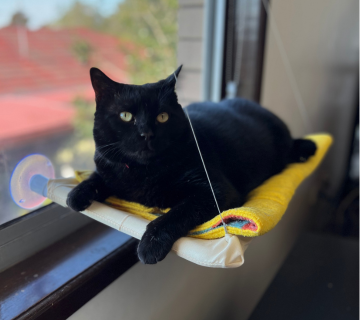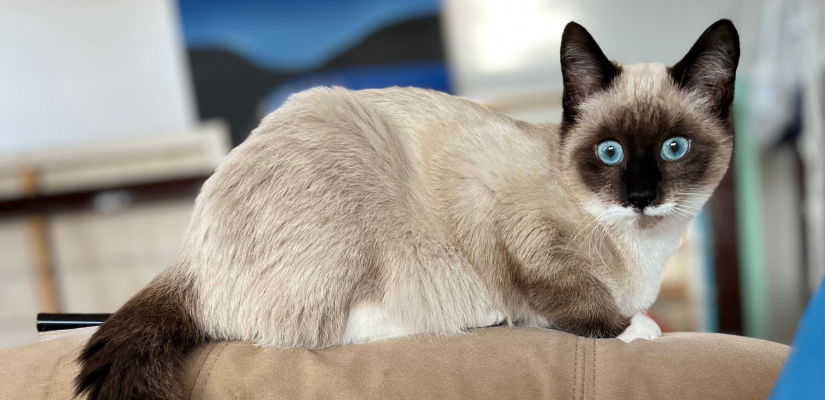Coconut oil, a natural remedy that has gained popularity among humans, has piqued the interest of cat owners seeking holistic approaches to enhance their feline companions’ well-being. The question arises: Can cats truly benefit from coconut oil?
Today let’s delve into the world of coconut oil, exploring its potential advantages for cats and addressing whether it’s a safe and beneficial addition to their diet and grooming routine.
Exploring the Potential Benefits of Coconut Oil for Cats
Understanding Coconut Oil and Its Composition
Derived from the meat of coconuts, coconut oil boasts a unique composition abundant in medium-chain fatty acids (MCFAs). These MCFAs, including lauric acid, caprylic acid, and capric acid, are metabolised differently than the long-chain fatty acids found in many other fats. This distinctive structure attributes to coconut oil’s potential health benefits.
One of the remarkable attributes of coconut oil is its ability to promote skin and hair (or coat) health. The MCFAs in coconut oil can contribute to maintaining a soft and shiny coat for a cat. Additionally, it may soothe dry or irritated skin, providing relief for cats that experience skin discomfort due to allergies or environmental factors.
Health Benefits of Coconut Oil for Cats
Among the potential health benefits of coconut oil, its effects on cats’ skin and coat health stand out. The medium-chain fatty acids present in coconut oil, especially lauric acid, offer moisture and nourishment to the skin, contributing to a soft and glossy coat. For cats prone to dry skin or itching due to allergies, the application of coconut oil can provide relief and promote healthy skin.
Additionally, anecdotal evidence suggests that coconut oil might aid in digestion and hairball prevention. Some cat owners have reported smoother digestion and a reduction in hairballs when incorporating small amounts of coconut oil into their feline’s diet. The MCFAs in coconut oil are believed to help break down fats and improve nutrient absorption, potentially enhancing digestive processes.
This not only keeps your cat healthy and comfortable, but can even help with constipation. And, the omega-3 in coconut oil can even assist in slowing and preventing kidney issues like cancer, which can be common in cats.
Coconut oil is also known to assist with gingivitis in cats just as it can in humans, keeping your cat home and happy rather than at the vet for dental procedures. You can try gently massaging a small amount into their gums, or if they won’t let you do that, introduce a little into their diet so it moves through their mouth as they chew.
Cats vs. Humans: Different Needs, Different Benefits
It’s fascinating to delve into the world of coconut oil and consider how its effects may vary between cats and humans due to their distinct nutritional needs. While both species can potentially benefit from the medium-chain fatty acids found in coconut oil, it’s crucial to recognise the fundamental differences in their dietary requirements.
Humans are known as omnivores, with the ability to digest and extract nutrients from a wide variety of foods. Our digestive systems are adapted to process both plant-based and animal-based nutrients efficiently. Coconut oil’s effects on human health are studied in the context of our dietary flexibility, which includes the incorporation of fats, proteins, carbohydrates, and a wide spectrum of vitamins and minerals.
On the other hand, cats are obligate carnivores, a term that underscores their exclusive reliance on animal-based protein for sustenance. Their digestive systems are specifically designed to process and metabolise animal-based nutrients. This adaptation is rooted in their evolutionary history as hunters, where they thrived on a diet composed primarily of meat.
Therefore, while coconut oil does offer potential benefits for cats, it’s important to acknowledge that their nutritional needs are uniquely centred around high-quality protein sources.
How to Use Coconut Oil for Cats
Incorporating coconut oil into your cat’s lifestyle can indeed be beneficial, provided it’s done thoughtfully and with awareness of your feline friend’s preferences and sensitivities. When introducing coconut oil to your cat’s diet, gradual incorporation is key.
Begin by offering a small amount, mixed with their regular food. This gradual approach allows your cat’s digestive system to acclimate to the new addition, minimising the risk of any gastrointestinal discomfort.
Observe your cat’s response closely during this period of introduction. Cats can vary greatly in their reactions to dietary changes, so be attentive to any signs of digestive upset, such as loose stools or diarrhoea. If any adverse effects occur, consider adjusting the quantity or discontinuing the use of coconut oil in their diet.
For external application, such as enhancing their coat’s shine or soothing skin irritations, a gentle approach is equally important. A small amount of coconut oil can be warmed between your hands and then delicately massaged onto your cat’s coat. Be cautious not to use excessive amounts, as cats are meticulous groomers and may ingest the oil during self-grooming. While coconut oil is generally safe, moderation ensures that your cat’s grooming routine remains comfortable and free from excessive oil consumption.
Remember, every cat is unique, and their reactions can vary. Paying close attention to their cues and responses will guide you in determining the most suitable and enjoyable way to incorporate coconut oil into their daily routine, supporting their well-being in a personalised and attentive manner.
Potential Risks and Dangers
While coconut oil offers potential benefits, it’s important to acknowledge potential risks and limitations. Rapid introduction of coconut oil can lead to digestive issues in some cats, such as loose stools or diarrhoea. It’s crucial to introduce coconut oil slowly and monitor your cat’s response to avoid any discomfort.
Additionally, the calorie-dense nature of coconut oil means that excessive consumption can contribute to weight gain. Obesity is a serious health concern for cats and can lead to a range of health issues. Use coconut oil in moderation and consider its calorie content as part of your cat’s overall diet.
Consulting a Veterinarian: The Best Approach
Before making any changes to your cat’s routine, consult your veterinarian. Each cat is unique, and their health considerations vary. Your veterinarian can offer tailored guidance based on your cat’s age, weight, health status, and any existing medical conditions. Professional advice ensures that you make informed choices that align with your cat’s well-being.
Coconut oil’s potential benefits for cats are intriguing, but it’s crucial to approach them with a holistic perspective. As a dedicated cat owner, your foremost priority is your feline companion’s health and happiness.
By seeking professional guidance and making informed decisions, you can enhance your cat’s overall well-being while ensuring they enjoy a balanced and nourishing lifestyle. Your veterinarian’s expertise will be your guiding light on this journey of using coconut oil to support your cherished cat’s health.

Are you looking to adopt a pet or donate to a pet rescue organisation? Georgie and Cindy from Large Hope SEO foster cats and kittens on the Sunshine Coast in Australia. If you’re local, get in touch to discuss adopting from the rescues. See cats and kittens available for adoption or donate so we can save more kittens.
 seolounge
seolounge